15 Minutes
At the heart of the first day of Startup Fair 2025 in Vilnius, one of the most talked-about sessions tackled a question that has been hanging over Europe’s innovation ecosystem for years: Can Europe truly rival Silicon Valley, or are we only repeating the same optimistic buzzwords?
The discussion gathered several of the region’s most influential voices in policy, entrepreneurship, and technology. The panel was moderated by Peter Vesterbacka, General Partner at FinestLove VC and founder of the well-known Slush conference, joined by Gintarė Verbickaitė, CEO of Unicorns Lithuania; Kateryna Kruk, Regional Public Policy Lead at Meta for Central and Eastern Europe; and Michael McGrath, European Commissioner for Democracy, Justice, the Rule of Law and Consumer Protection.
The atmosphere in the packed main hall at LITEXPO was energetic and expectant. The conversation began lightly but quickly turned into one of the most substantial debates of the day about Europe’s competitiveness, regulation, and mindset.
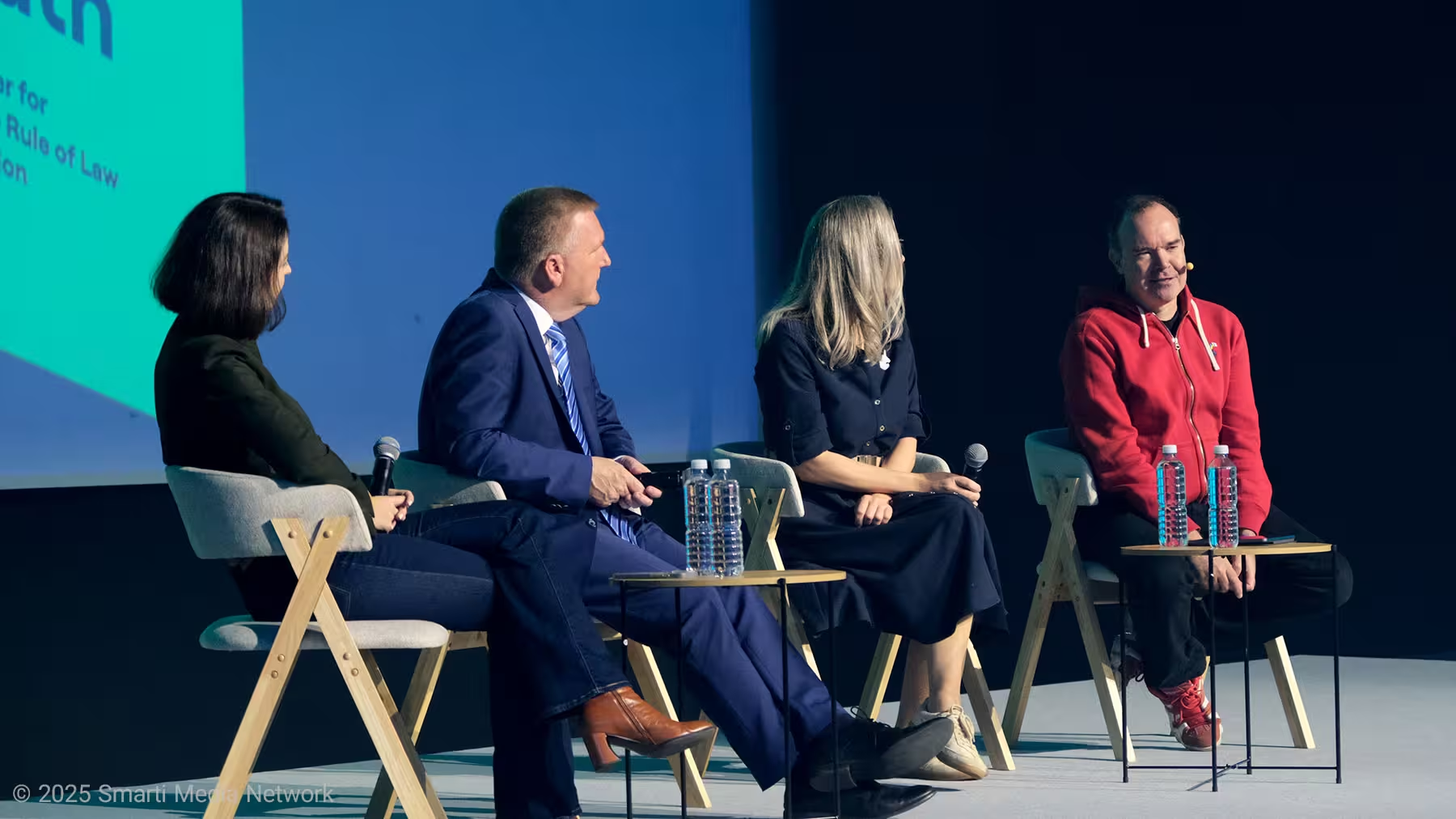
Setting the Stage: Europe’s Competitive Position
Moderator Peter Vesterbacka opened with a quick reflection on how far the European startup scene has come. He recalled his own years with Slush in Helsinki and the global success of companies like Rovio and Angry Birds, which had once been considered small regional stories. He asked the audience whether Europe’s ecosystem could stand up to Silicon Valley or China on equal terms.
“I’m actually a bit of a contrarian here,” he said. “I think Europe has already won in many ways. Look at what we’ve built in the Nordics and Baltics. When you compare the number of unicorns per capita, we’re far ahead of most regions in the world.”
He pointed out that if Germany were producing unicorns at the same per-capita rate as Estonia, it would now have more than six hundred of them. The audience laughed, but the point landed: success in Europe is not evenly distributed. Small ecosystems such as Estonia, Finland, and Lithuania have outperformed much larger ones.
Vesterbacka framed the challenge as one of diffusion. “The problem isn’t that Europe can’t create great companies. It’s that the excellence is concentrated in a few regions. The question is how to spread that success across the continent.”
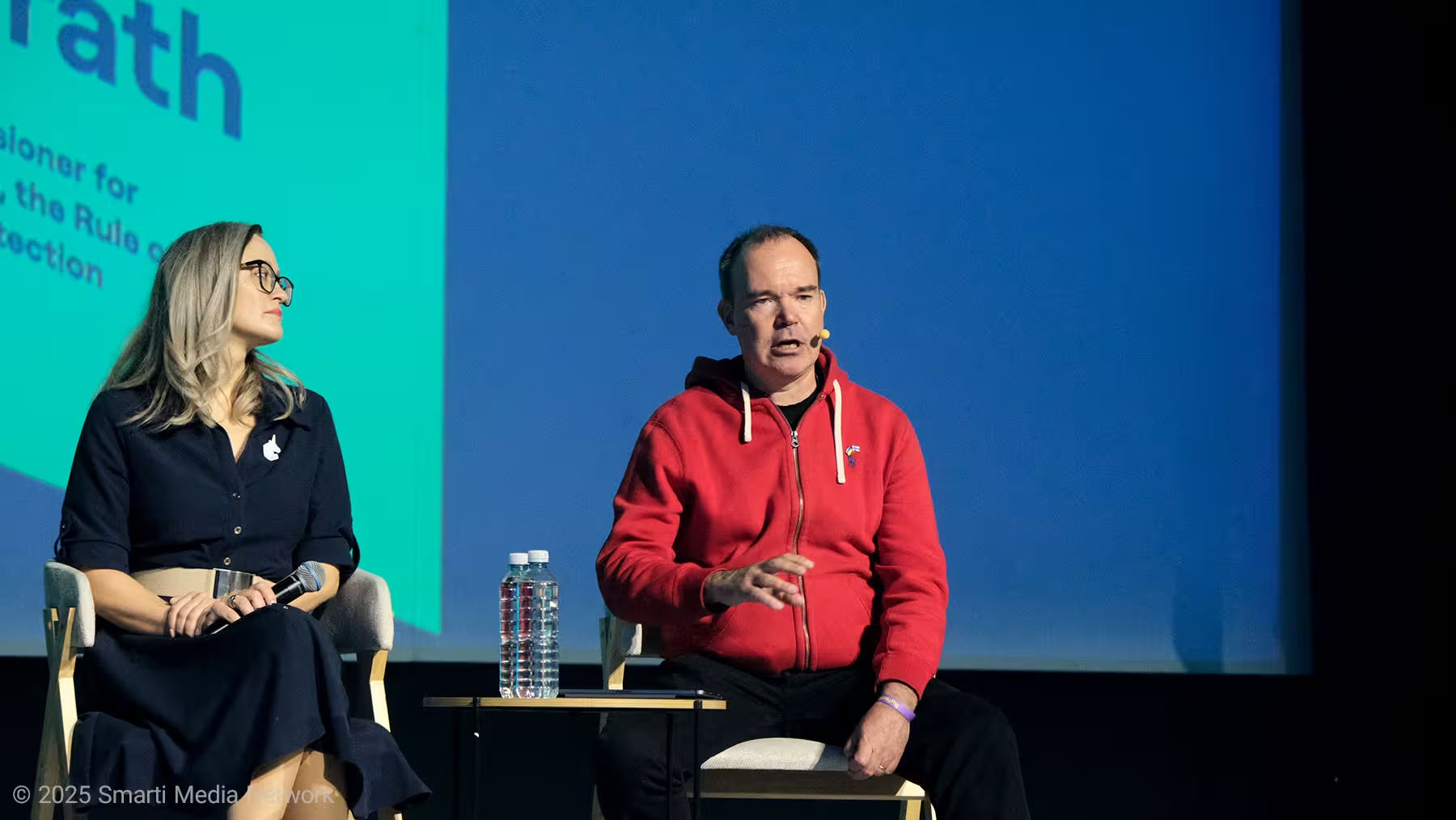
Gintarė Verbickaitė: Small Can Be a Superpower
Vesterbacka invited the panelists to introduce themselves, beginning with Gintarė Verbickaitė, head of Unicorns Lithuania. Smiling, she began: “I’ll say we should be like Lithuania. We may be small, but we’re ambitious. And the smallness of our ecosystem is what actually makes it powerful.”
She explained that compact startup communities naturally foster collaboration. Founders know one another, share lessons, and build resilience through openness. “When you know that you’re not alone, it’s easier to take risks,” she said. “You see others fail, recover, and try again. That builds trust and momentum.”
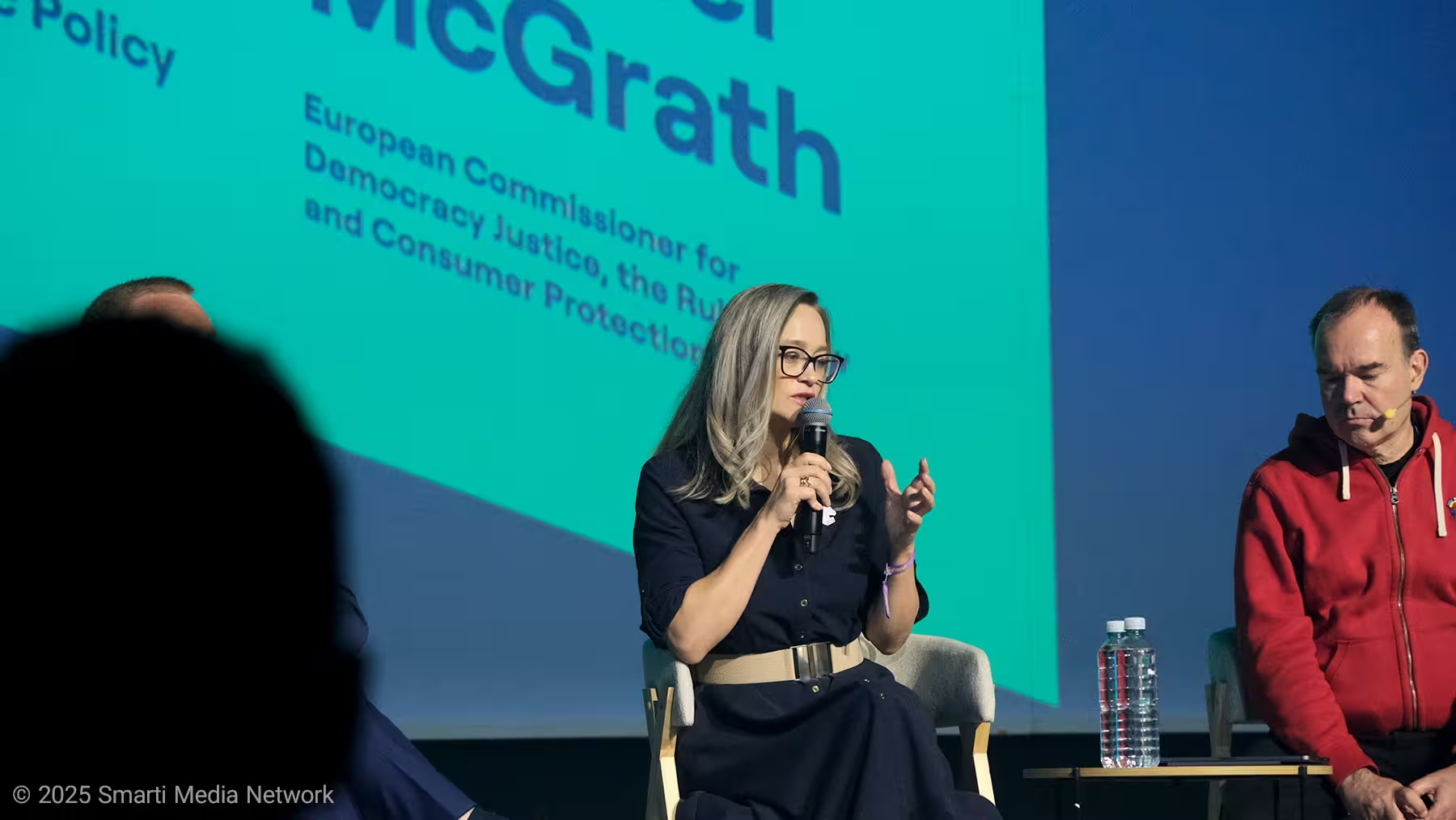
Verbickaitė emphasized three characteristics that make the Baltic region stand out: its global orientation, its habit of working closely across borders, and its high density of technical talent. Strong STEM education, English fluency, and digital infrastructure allow even tiny markets to compete globally.
“Lithuania and our neighbors have shown that you don’t need a huge domestic market to be global,” she said. “We think internationally from day one, and that mindset changes everything.”
Michael McGrath: Europe Needs to Unlock Its Own Market
Next to speak was Commissioner Michael McGrath. Coming from Ireland, he said he understood the strengths and frustrations of small markets. He noted that before joining the European Commission, he had served in several economic portfolios and had seen firsthand both the opportunities and obstacles European startups face.
“The European Union is a market of 450 million people and twenty-seven countries,” he began, “but if we are honest, it is not yet a true single market. Too often, national legislation and fragmented systems stand in the way of scale.”
He explained that one of the Commission’s central projects in the current term is to reduce that fragmentation through what has been dubbed the “twenty-eighth regime,” an optional corporate law framework designed to coexist with national systems. The aim is to make it easier to start and expand a business anywhere in the EU with digital-first procedures and mutual recognition across borders.
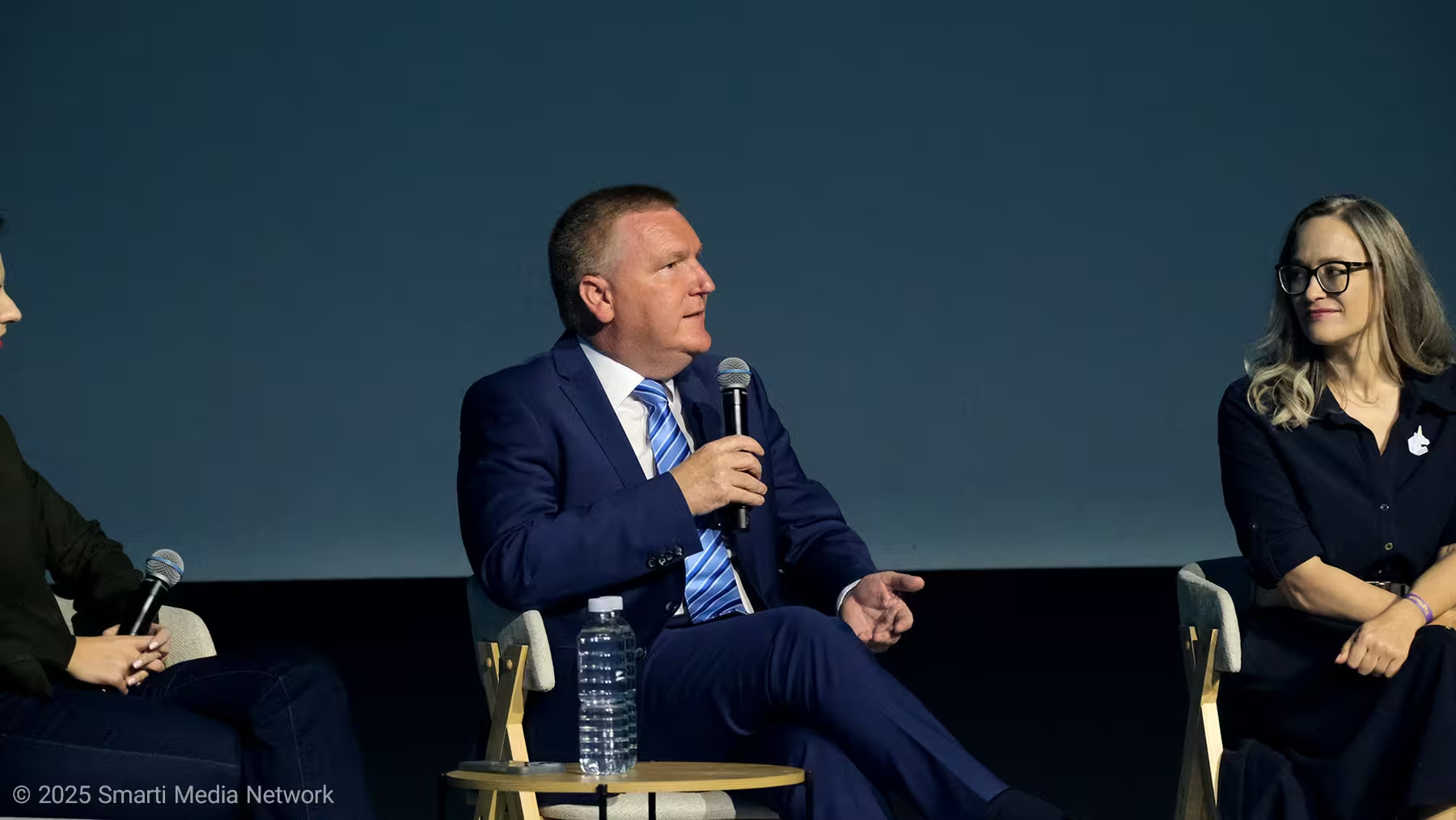
“It’s about removing unnecessary friction,” McGrath said. “If you’re building a company in Vilnius, Dublin, or Paris, you should be able to grow across Europe without reinventing your legal structure each time.”
He also addressed Europe’s lack of deep capital markets. The problem, he said, is not the absence of money but the failure to mobilize it. “We have around eleven trillion euros in household savings sitting idle. We need to get that money working for our startups and scale-ups.”
He described new initiatives such as pan-European savings and investment accounts intended to channel private capital into productive assets. “We know the challenges,” he concluded. “It’s beyond time for reports. We need action, simplification, and implementation.”
Peter Vesterbacka Challenges the Policy View
Vesterbacka, leaning forward, gently pushed back. He agreed that regulatory reform matters but argued that culture and ambition might be even more important. “Sometimes we Europeans use bureaucracy as an excuse,” he said. “People say, ‘If we were in the US, it would be easier.’ But we can build global companies right here. The founders of Rovio did not wait for perfect rules, and they still succeeded.”
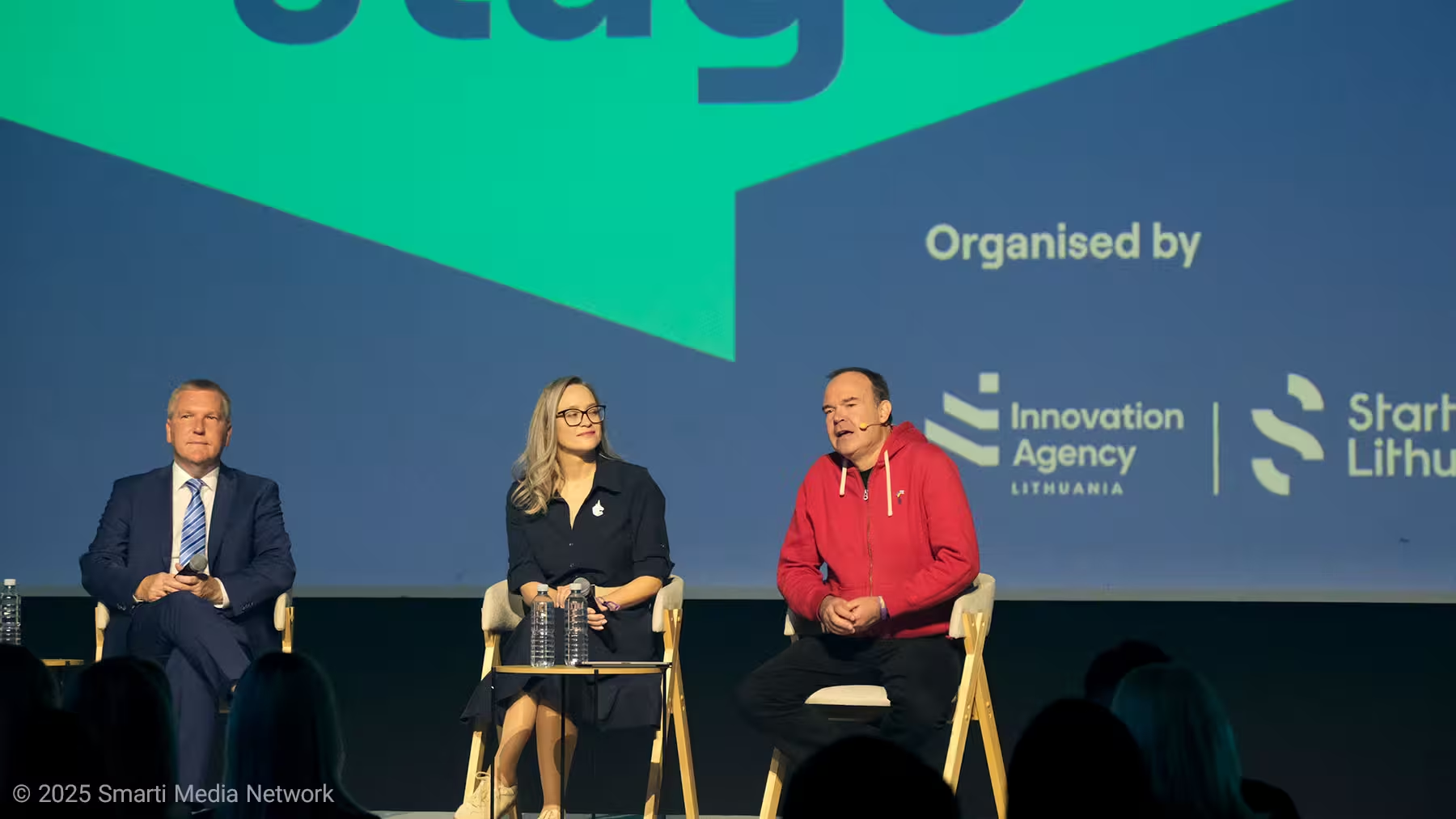
He added that while Europe needs better integration of its capital markets, it also needs to stop seeing itself as the underdog. “We have more startups per capita here than the US or China. The challenge is not potential but mindset.”
Kateryna Kruk: Urgency and the Eastern European Mindset
Kateryna Kruk, representing Meta and originally from Ukraine, brought a sharp contrast between Eastern and Western European approaches to innovation. She had just returned from a startup conference in Baku, Azerbaijan, and used it as a reference point.
“In much of Western Europe, when people talk about new technology, the first reaction is to analyze risk,” she said. “How do we regulate it? How do we control it? That’s a rational approach, but it often delays innovation. In Eastern Europe, and especially in the Baltics, the first question is, ‘What can we do with this?’ There is a sense of urgency and opportunity.”

Kruk argued that this difference in mentality explains why the Baltic region moves faster. “While thinking about rule of law and regulation, we still see technology as a way to close gaps, to solve social challenges, to create businesses. That’s what drives both governments and startups here.”
She urged the rest of Europe to adopt a similar urgency. “Sometimes you don’t have years to design another program or strategy paper. The time to act is now. And this mindset is visible here at Startup Fair—you can feel the energy.”
Vesterbacka’s Response: Stop Using Europe as an Excuse
Picking up on Kruk’s remarks, Vesterbacka said he recognized that same sense of urgency in the region. “We have more unicorns per capita than the US or China,” he said. “We are already winning in many ways. But still, I hear people saying, ‘If only we were in the US.’ We have to stop that. Being European is not an excuse.”
He compared the complacency he sees in some parts of Europe with the decisiveness of founders in smaller markets. “When the environment is difficult, people here act. They don’t wait for the perfect policy. They build.”
Verbickaitė: Startups Can React Faster Than Legacy Industries
Verbickaitė agreed, saying that startups had demonstrated how quickly they could adapt in times of crisis. “The war in Ukraine showed that startups can pivot and respond faster than traditional defense contractors,” she said. “They can test an idea in two weeks, iterate, and deliver results.”
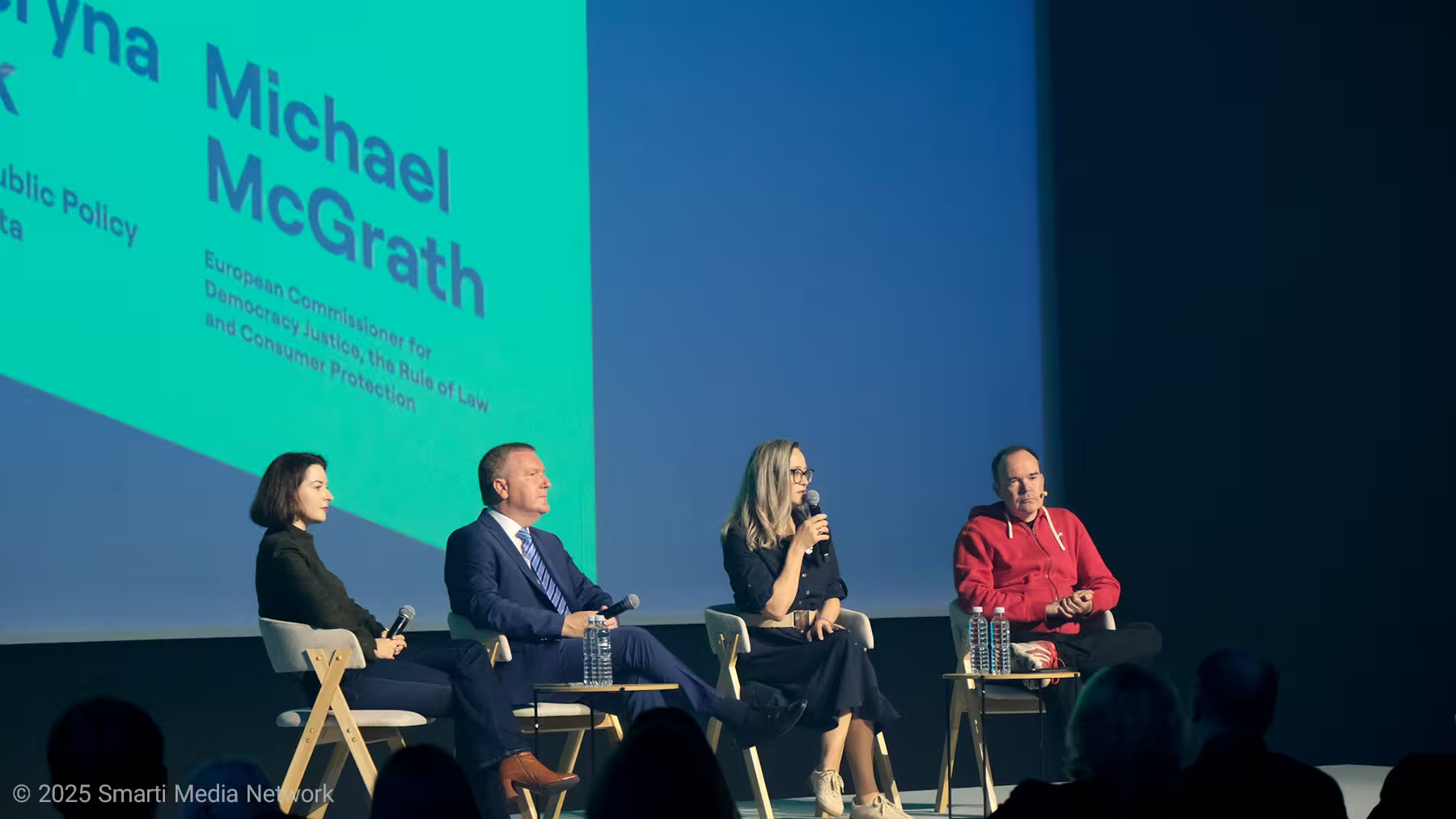
She suggested that traditional industries and even governments could learn from this startup mindset. “Flexibility and speed should not belong only to startups. They should be part of how we approach any challenge in Europe.”
The Commissioner’s Reply: Urgency, Action, and Mindset
McGrath nodded in agreement. “It is undoubtedly true that the rest of Europe can learn from this region,” he said. “There is a higher per-capita rate of success here than in most parts of the world. The can-do attitude matters.”
But he also returned to his policy priorities. “We need to address the structural barriers at the EU level. Fragmentation in financial services, telecoms, and energy is real. Those are policy issues that limit what entrepreneurs can achieve.”
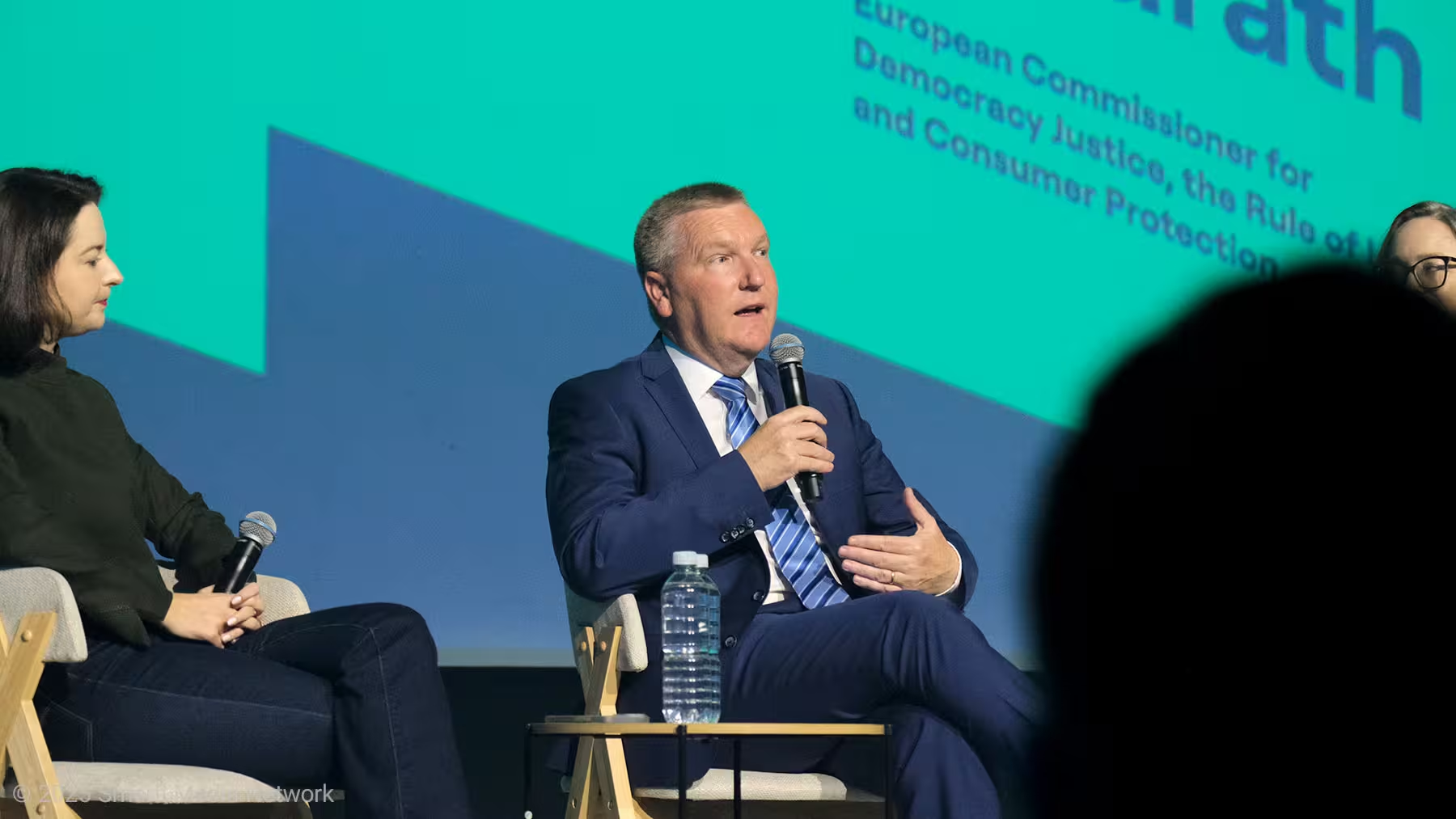
At the same time, he echoed the cultural message. “Europe must learn to embrace risk. Failure is not fatal. It’s a step toward success.”
The Regulation Debate: Complexity Versus Opportunity
As the discussion moved forward, Kruk and Vesterbacka engaged in a light exchange about regulation. The moderator joked that Europe’s strict legal culture at least ensures that people “don’t wake up in Alcatraz.” The room laughed.
Kruk responded seriously: “No one argues that we don’t need regulation. But sometimes over-regulation hurts everyone, even large companies. The compliance cost for the AI Act, for example, is estimated at twenty to thirty percent of a startup’s budget. That’s huge.”
.avif)
She clarified that she was not advocating deregulation, but better design. “We need to make it simpler, more predictable, and fair to both big and small players.”
McGrath agreed that balance is crucial. “We can protect citizens and privacy while making rules easier to navigate. It’s about proportionality.”
Lessons from Ukraine and Beyond
Kruk brought another perspective from Ukraine’s ongoing transformation. She recalled a recent panel on innovation regulation where a participant from Estonia told Ukrainian officials that they had a unique opportunity to learn from Europe’s successes and mistakes before fully harmonizing their laws with the EU.
“There are things Europe has done right,” she said, “but also things we can do smarter. And it’s encouraging to hear that Brussels is aware of this and wants to create frameworks that really work for startups.”

She concluded that this dialogue between newer and older markets is exactly what Europe needs. “We share not only best practices in regulation but also in mindset.”
Audience Interaction and Final Question
As the panel neared its end, questions from the audience began to appear on the screen. One participant asked directly: “Should Europe even try to rival Silicon Valley, or should it just do things its own way?”
Verbickaitė answered first. “Europe can win if it’s ambitious enough and if it moves fast. We have deep talent, strong research, and a broader sense of purpose that includes impact, not just profit.”
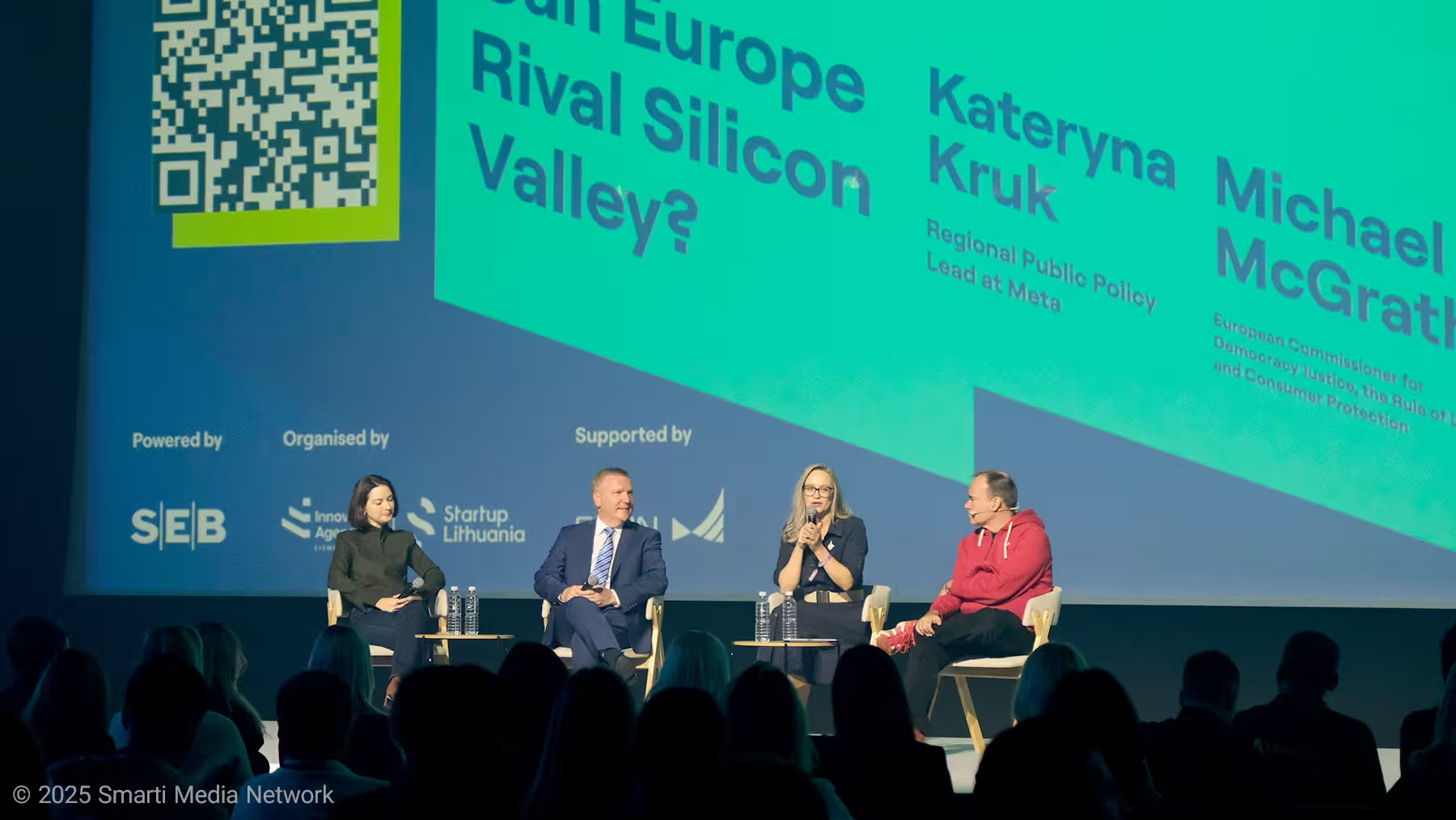
Vesterbacka added that bureaucracy should not hold anyone back. “Our biggest problem is flexibility. Many of our success stories happened despite the system, not because of it. Imagine how much more we could achieve if the system actually helped.”
McGrath responded from the policy side. “It’s not about copying Silicon Valley. We should do it the European way. Europe is the best place in the world to live, and it must become the best place to start and grow a business. We can achieve balance between innovation and our fundamental values of democracy, equality, rule of law, and human dignity.”
Kruk agreed. “Copying the Silicon Valley model doesn’t make sense. Europe’s strength is in its people and its ideas. Our engineers and researchers are world-class. We can build on that and create our own approach.”
Key Themes Emerging from the Debate
Across ninety minutes of conversation, several themes kept resurfacing.
First was urgency. Both Kruk and Vesterbacka insisted that Europe cannot afford endless consultation cycles. The pace of technological change demands faster action.
Second was integration. McGrath’s description of the 28th regime and capital-flow initiatives suggested that Europe’s next big innovation leap depends on removing internal borders that still divide its economy.
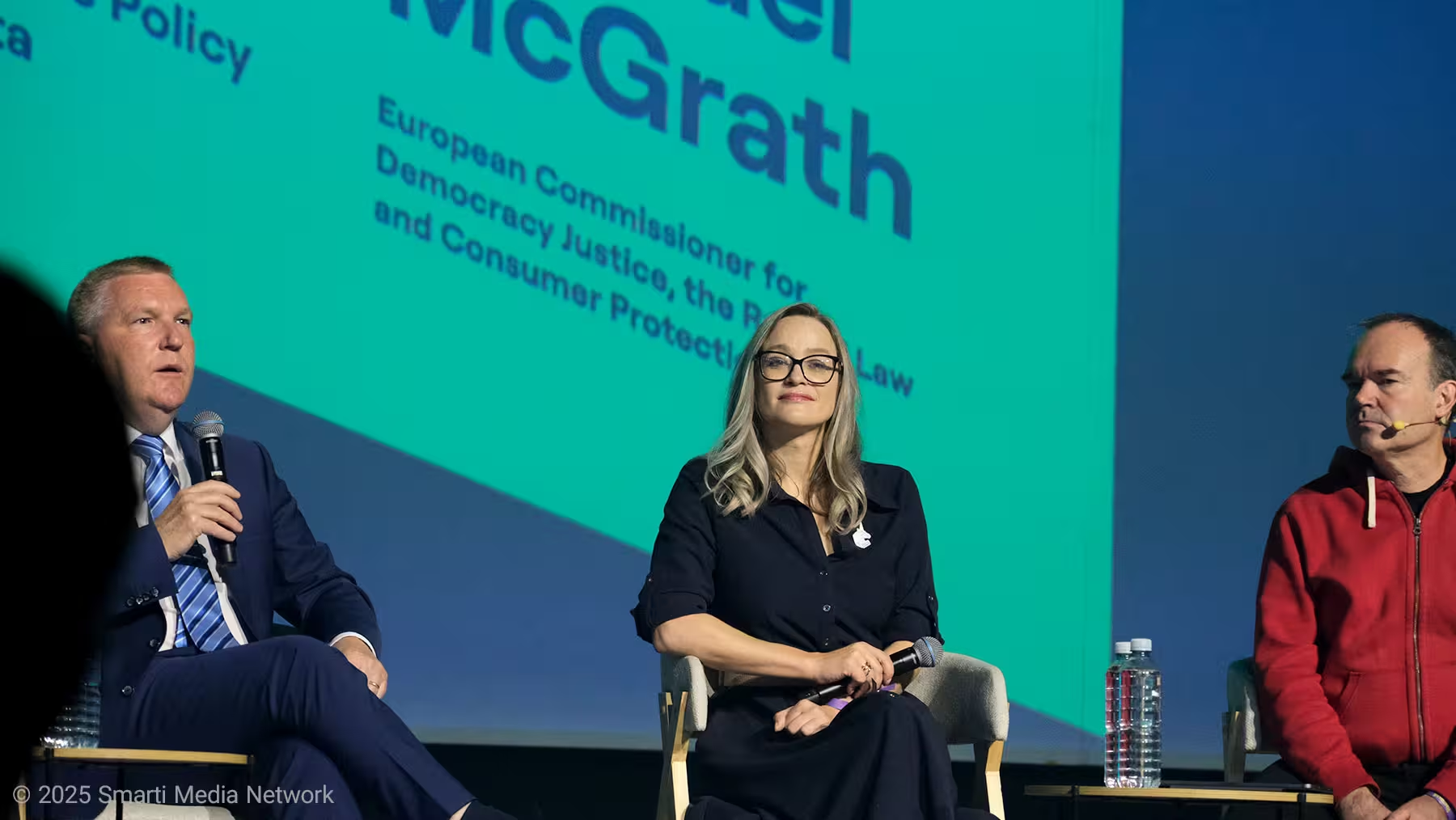
Third was mindset. Verbickaitė and others argued that small countries had turned size into strength. If that mentality spread, Europe could compete globally without imitating others.
Fourth was culture. The panel agreed that Europe’s fear of failure still holds it back. Normalizing iteration and experimentation will be essential if the continent wants to sustain innovation.
Finally, there was a shared conviction that values and competitiveness can coexist. Regulation should not be dismantled but refined to support both innovation and trust.
Conclusion: Competing the European Way
The session closed with applause and a sense of pragmatic optimism. The panelists had not only discussed what Europe lacks but also what it already has: world-class talent, strong education systems, advanced infrastructure, and a growing community of founders who think globally from the start.
Vesterbacka summarized it succinctly. “We don’t need to become another Silicon Valley. We already have something unique. What we need now is speed and belief.”
McGrath’s final words echoed that sentiment. “We can protect our citizens, uphold our values, and still be bold. The two are not opposites. Europe can lead if it decides to act.”
As the crowd dispersed into the networking area, one feeling lingered: Europe’s startup ecosystem may not yet rival Silicon Valley, but it has stopped asking for permission to try.
Comments
max_x
Feels overhyped tbh, regulation always becomes a loop. Still love the Baltic hustle tho, fast movers win.
Marius
Is that unicorns-per-capita stat legit? If Germany had 600 then where's the capital to scale them? 450m market sounds nice but borders still bite
atomwave
Wow, didnt expect such optimism from EU panel, kinda moving. Small countries punching above weight, but still curious how capital will actually flow…
luna_dev
small is a superpower, true, but we need capitl and fewer rules that choke startups, stop overthinking
mike88
loving the urgency and baltic mindset, but regulation still needs smarter design, pls act faster

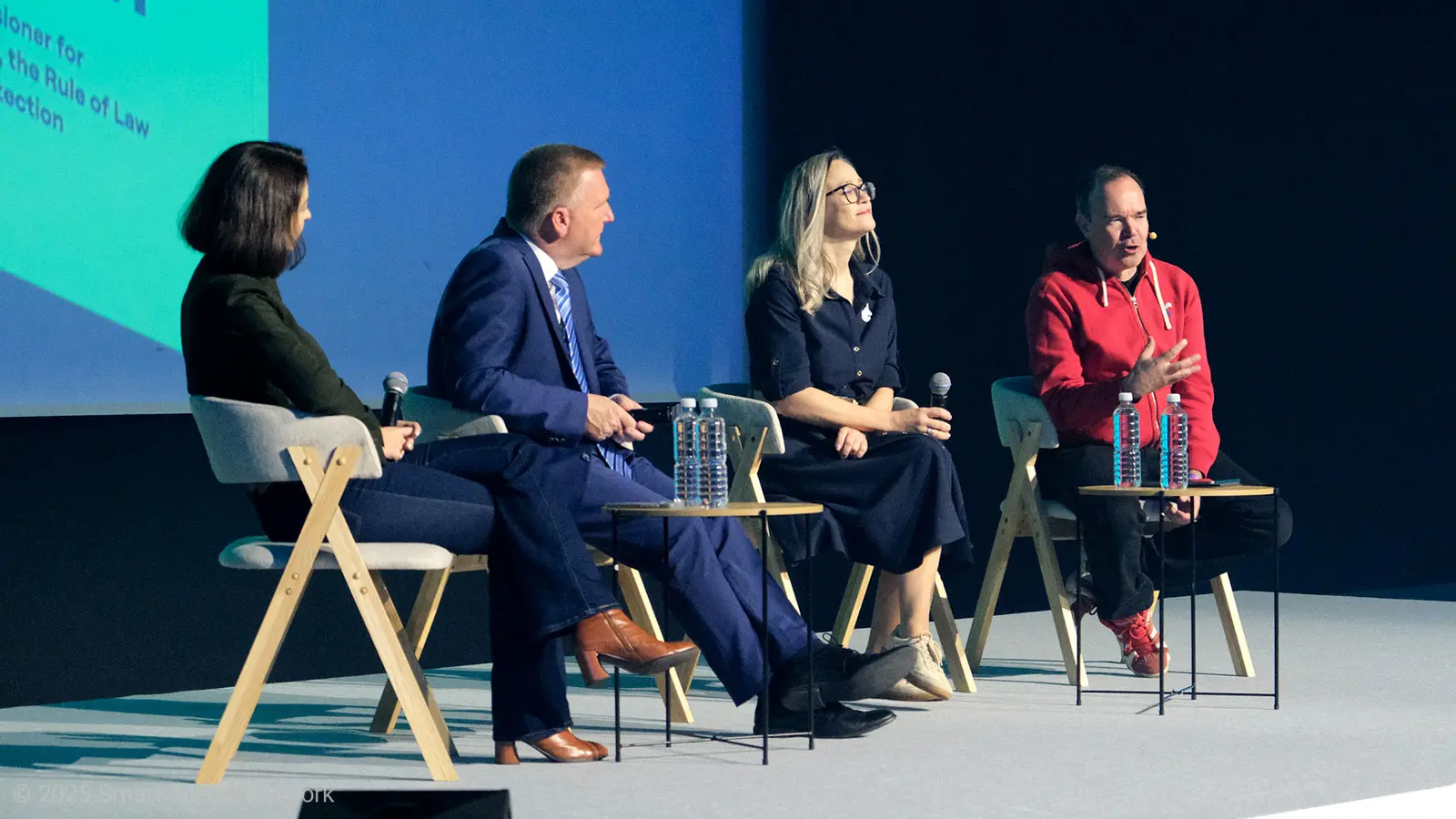
Leave a Comment